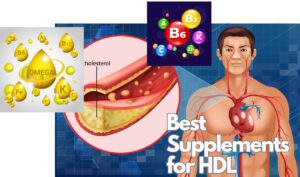
Image by Freepik

Understanding High Blood Pressure (Hypertension) in India
High blood pressure, also called hypertension, is a serious health concern in India, affecting millions of people. This article explains what it is, why it matters, and available treatment options.
The Silent Threat: What is Hypertension?
Hypertension is simply high blood pressure. It’s diagnosed when your blood pressure readings are consistently above 140/90 mmHg. There are different stages of hypertension, each indicating the severity. The good news is that even a small reduction, like 5mmHg, can significantly lower your risk of stroke and heart disease.
Taking Control of Your Health
Before jumping to medication, there are lifestyle changes that can help manage hypertension. Eating a healthy diet, low in sodium and rich in vegetables, is a great first step. Regular exercise also plays a crucial role.
Medications for Hypertension – Finding the Right Fit
If lifestyle changes aren’t enough, there are various medications available. This article explains four main classes:
- ACE inhibitors and beta-blockers: These are beneficial for people with heart failure or a history of heart attack, as they can improve survival rates.
- ACE inhibitors help your blood vessels relax by preventing a natural chemical in your body from tightening them. This allows blood to flow more easily, lowering your blood pressure. While they’re very effective, some people experience side effects like a cough, swollen lips or tongue (angioedema), or high potassium levels. Your doctor needs to monitor these while you’re taking them.
- Beta-blockers work by calming your heart rate and reducing your workload. Think of them as taking the stress off your heart muscle. While they’re helpful for many, they can sometimes cause you to feel tired or dizzy, or make it harder to breathe if you have asthma. Certain types of beta-blockers can also affect blood sugar control in diabetics, so it’s important to talk to your doctor about any pre-existing conditions.
- Calcium channel blockers: Calcium channel blockers, as the name suggests, relax the muscles in your arteries. This allows them to open wider, again making it easier for blood to flow and lowering your blood pressure. These medications are often a good first-line choice for people newly diagnosed with high blood pressure. Some side effects to watch for include swelling in your ankles (edema), constipation, or headaches.
- Diuretics: Medications like hydrochlorothiazide are commonly used, but it’s important to be aware of potential side effects like increased blood sugar and reduced potassium.
Important Note: Individualized Treatment is Key
It’s important to remember that everyone is different. Medications have varying effects depending on pre-existing conditions. For example, someone with gout might not be a good candidate for certain medications that can worsen their condition. This is why consulting a doctor is crucial to finding the right medication and treatment plan for you.
Living a Healthy Life with Hypertension
By understanding hypertension, making healthy lifestyle choices, and working with your doctor to find the right treatment plan, you can manage your blood pressure and live a long, healthy life.




